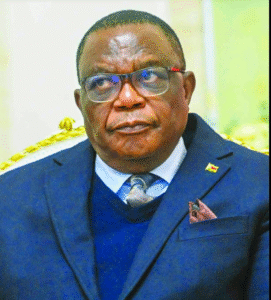ZEC’S PHANTOM VOTERS: WHO REALLY RULES WHEN DEMOCRACY IS UNDER SIEGE?
In a growing storm of controversy, the Zimbabwe Electoral Commission (ZEC) has once again found itself at the centre of alarming allegations that threaten the integrity of Zimbabwe’s electoral system. The electoral body, which is constitutionally mandated to ensure a credible, transparent, and fair election process, is being accused of tampering with the voter roll—by allegedly adding voters after the official registration deadline had passed.
This accusation strikes at the heart of Zimbabwe’s fragile democratic processes. The constitutional guidelines on voter registration are not mere suggestions—they are the legal foundation that upholds the legitimacy of our elections. When these laws are allegedly flouted by the very institution meant to safeguard them, it invites a profound crisis of confidence in the entire system.
According to observers, the ZEC’s official online records showed a curious spike in registered voters well after the registration window had officially closed. This unexplained increase has triggered outrage from opposition parties, civil society actors, and concerned citizens who suspect these additions are neither innocent mistakes nor routine administrative updates—but a calculated attempt to rig the upcoming elections.
These developments are especially troubling in a country where previous elections have been marred by accusations of ballot manipulation, voter roll irregularities, and systemic disenfranchisement. Zimbabwe’s electorate is not new to these patterns. The wounds from past stolen elections remain fresh, and ZEC’s alleged conduct only deepens public scepticism.
What’s more disturbing is the fear that these so-called “phantom voters” may be strategically placed in key constituencies to dilute opposition support or secure predetermined victories for ruling party candidates. Such manoeuvres, if verified, would amount to state-sponsored electoral fraud—an act that not only violates constitutional law but also betrays the will of millions of Zimbabweans who continue to yearn for genuine democratic change.
Yet, as damning as these allegations sound, they remain unproven in the court of law. For justice and truth to prevail, we cannot rely on suspicion alone. What Zimbabwe desperately needs now is an independent, forensic audit of the voter roll—conducted by local experts and international observers with full access to ZEC data. Anything less will only reinforce fears of a rigged election and sow further division in an already polarised nation.
The burden now lies heavily on ZEC to rise to the moment. The electoral body must address these allegations not with defensive posturing or silence, but with transparency and accountability. They owe the citizens of Zimbabwe a clear, detailed explanation backed by verifiable data. If there has been no wrongdoing, ZEC should welcome an independent investigation as an opportunity to restore its dwindling public trust.
But if ZEC continues down this path of silence and secrecy, it risks confirming the worst suspicions of those who believe democracy in Zimbabwe is merely a performance—where the outcomes are predetermined, and the electorate is just an audience to a farce.
Zimbabwe’s political future cannot be entrusted to opaque institutions that function behind closed doors. Democracy cannot thrive where suspicion replaces certainty, and truth is buried under manipulated numbers.
The saga of the ghost voters is not just about numbers. It is about power—who holds it, who manipulates it, and who is denied it. It forces us to ask: if voters are added or removed in the dark, if the rules are bent to serve a single party, then is the will of the people still sovereign? Or are we simply spectators in a game where the scoreboard is rigged?
As Zimbabwe approaches another pivotal election, the integrity of the process must not be compromised. True democracy demands sunlight. And only by confronting these shadows can Zimbabwe begin to reclaim the dignity of its vote and the promise of its constitution.



